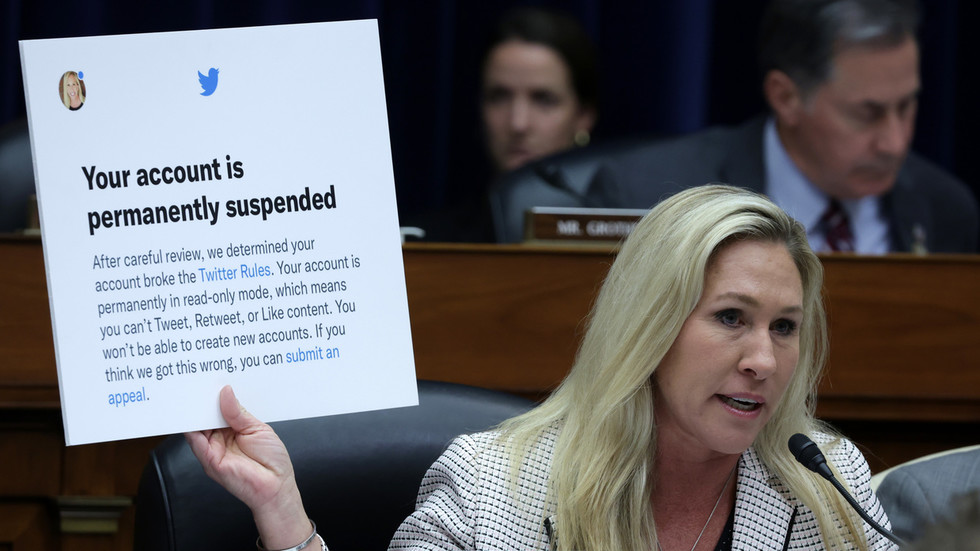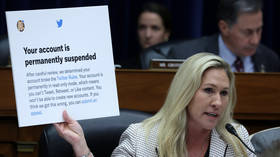
The social media giant said it would continue to allow “hyperbolic and consensual speech between friends”

FILE PHOTO: US Rep. Marjorie Taylor-Greene (R-GA) addresses the House Oversight and Accountability Committee on Capitol Hill on February 8, 2023 in Washington, DC © Alex Wong / Getty Images
Twitter has unveiled new rules to crack down on “violent speech,” saying it will impose a “zero tolerance” policy toward those threatening or glorifying the harm of another person or group. Certain exemptions will apply for cases involving satire, jokes and some forms of “artistic expression.”
The company announced the decision on Tuesday, noting that going forward, Twitter users “may not threaten, incite, glorify, or express desire for violence or harm,” part of a policy change intended to “prevent the normalization of violent actions.”
“In most cases, we will immediately and permanently suspend any account that violates this policy,” it said in a press release, adding that “for less severe violations,” some accounts may simply be locked temporarily.

However, the new policy will also make several exceptions, including for posts which contain “no clear abusive or violent context,” such as “hyperbolic and consensual” ribbing between friends, or during the “discussion of video games or sporting events.”
“We also allow certain cases of figures of speech, satire, or artistic expression when the context is expressing a viewpoint rather than instigating actionable violence or harm,” the company added, claiming it would “evaluate” all flagged posts before taking action against users.
While the decision marks one of the first major speech policy changes adopted by Twitter since its takeover by Elon Musk last October, the site’s rules have continued to evolve over the years.

In 2018, under the leadership of the platform’s original owner and co-founder Jack Dorsey, Twitter imposed a ban on speech which “dehumanize[s] anyone based on membership in an identifiable group, as this speech can lead to offline harm.” The following year, it expanded that policy to prohibit posts attacking users on the basis of their “religion, caste, age, disability, disease, race, ethnicity, national origin, gender, gender identity, or sexual orientation,” and later took additional steps to curtail violent posts following the riot at the US Capitol on January 6, 2021.




